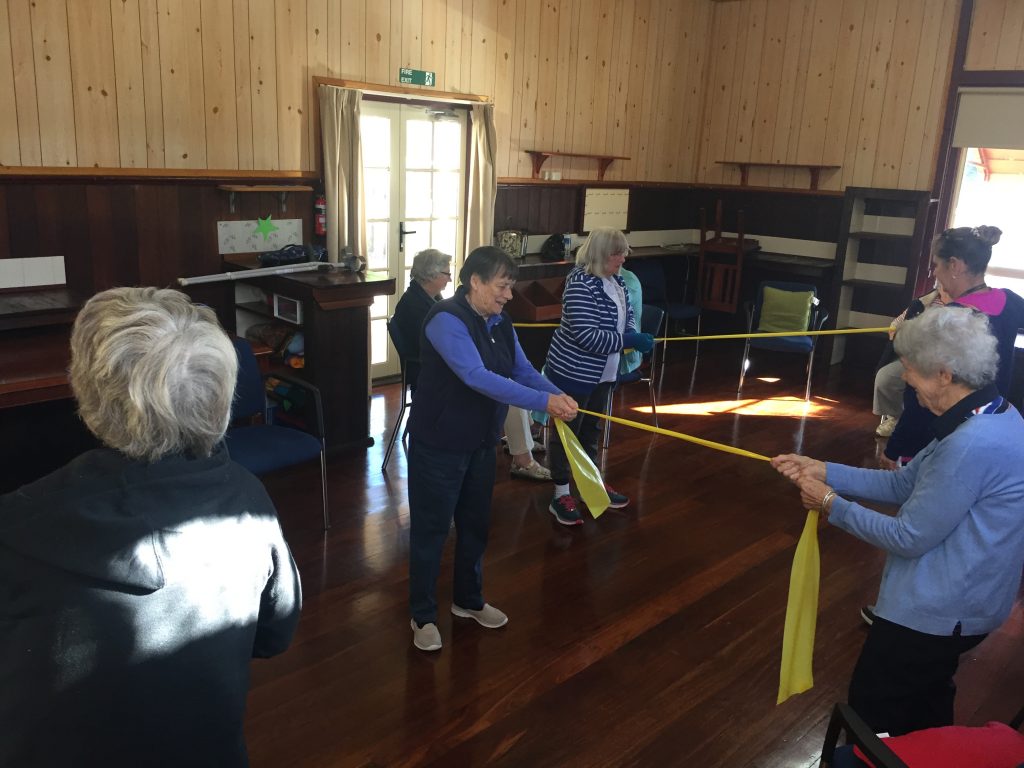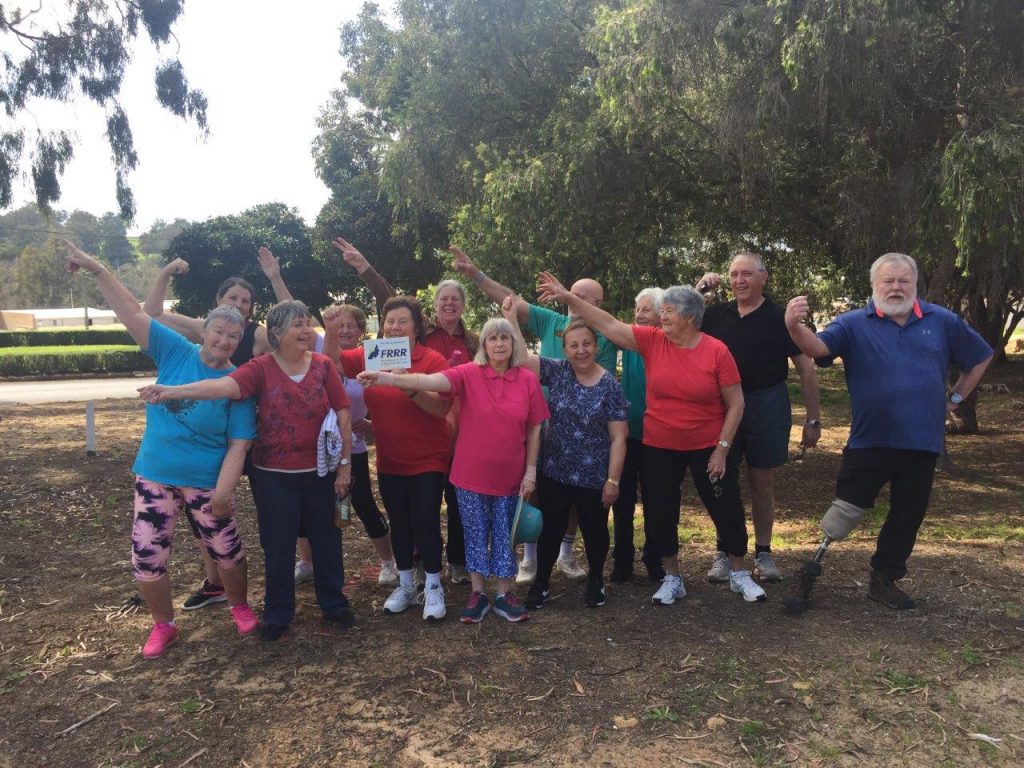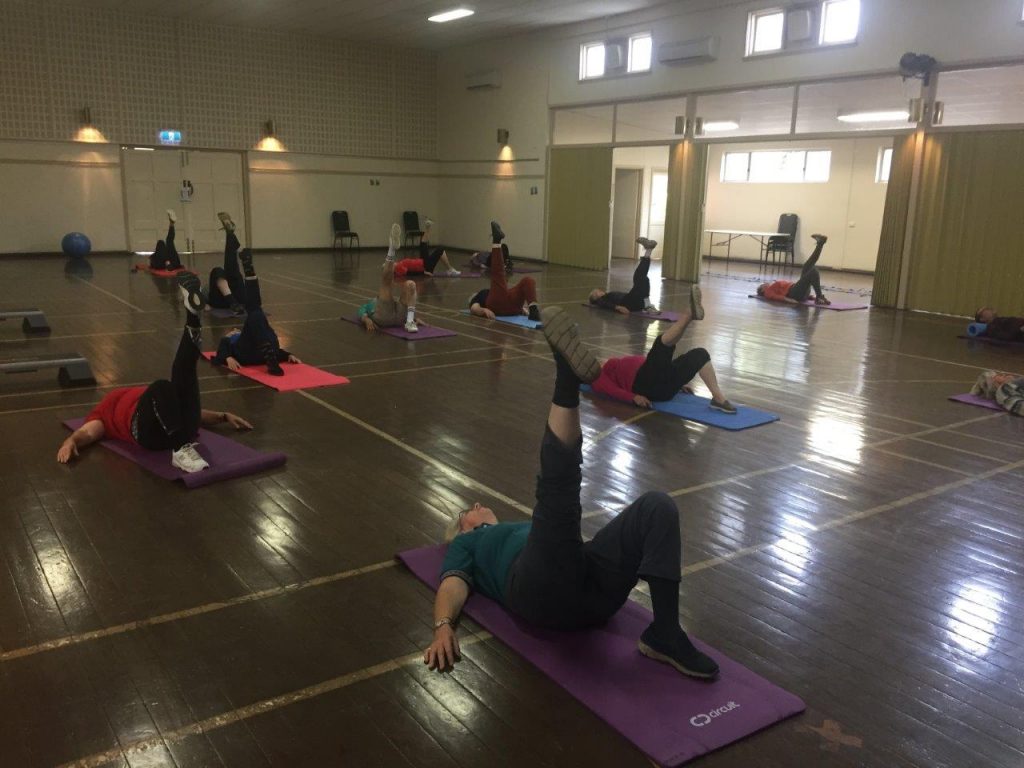Foundation for Rural & Regional Renewal (FRRR)
In Boyup Brook, WA, the Community Resource Centre wanted to encourage older locals to keep fit and healthy. Despite the large numbers in the area (49% of community members are over the age of 50) there was no exercise group locally catering to the older age bracket, who are at risk from a sedentary lifestyle which affects their health and puts subsequent pressure on local health services.
With four staff, 48 members and a committee of eight, the Boyup Brook Community Resource Centre (BBCRC) already plays a big part in the health and wellbeing of the community, hosting a visiting chiropractor, running a community garden, offering cancer support information and various other exercise classes.
The Centre applied to FRRR for funding to run a Seniors Exercise and Activity (SEA) Program. They felt the program would improve the cardio-fitness and mobility of elderly community members and fill an unmet need in the town, capturing “a segment of the population who will benefit from movement and activity but who don’t necessarily want to go to a more strenuous class.”
In July 2019, with a $4,419 Strengthening Rural Communities grant funded by the John T Reid Charitable Trusts, arrangements were made for the program to start. The Boyup Brook Town Hall was booked to provide a central, accessible and comfortable venue for participants. Equipment was purchased, and the class was advertised in the Boyup Gazette, on noticeboards in the community, the website, social media and also promoted by word of mouth.
Classes ran from August 2019 until June 2020, and were facilitated by CRC Manager Jodi Nield, who holds a Bachelor of Science (Sports Science) and has many years of experience in conducting similar projects. Through her position and involvement in the community, Jodi already had good rapport with local seniors.
Each session was planned to incorporate a variety of group and individual exercises, games and circuit activities that promoted fitness, flexibility, strength and balance. Participants were encouraged to exercise at their own pace with support from the instructor, and encouragement from fellow participants.
Funding also enabled the production of exercise booklets, which were a key component in enabling participants to continue their exercise at home when classes couldn’t be held face to face due to COVID-19 restrictions. Not everyone returned following the break, but the 40 sessions were still able to be conducted during the term of the project, with an average of 12 people attending each session.
“I am most proud of how the program was diverse and inclusive of disability. One participant was a leg amputee, and another an arm amputee. Others had restricted movement in knees, wrists and shoulders. Some had good levels of physical fitness, whereas others had limited fitness, however all were included in the program with alternative activities provided if required.”
Jodi Nield
Manager, Boyup Brook Community Resource Centre
This project not only improved the fitness and quality of life of these residents, but also their social connections and emotional wellbeing. Ms Nield noted that many of the participants were heading out for coffee following the sessions, and the whole community will indirectly benefit from a more connected and engaged senior demographic.
In 1979, an idea was formed between a bunch of country music loving mates over a few drinks around a campfire in the south west of WA. It became the Country Music Club of Boyup Brook (CMCBB), and before long, they were putting on a show on a regular basis.
Since 1986, the Boyup Brook Country Music Festival has been a major drawcard for this small farming community, attracting more than 10,000 visitors. The CMCBB does a lot more than put musicians on a stage though – there is a strong commitment to upskilling and training it’s volunteers and trainees in all aspects of event planning, including administration, bookkeeping, budgeting, grant writing, event management and office procedures, supporting them to gain financial literacy and job readiness skills. This benefits a core group of 20 volunteers that contribute to pre-planning throughout the year, and 150 during the Festival weekend. The Festival also provides the main fundraising event for more than 36 local community groups that participate during the weekend.
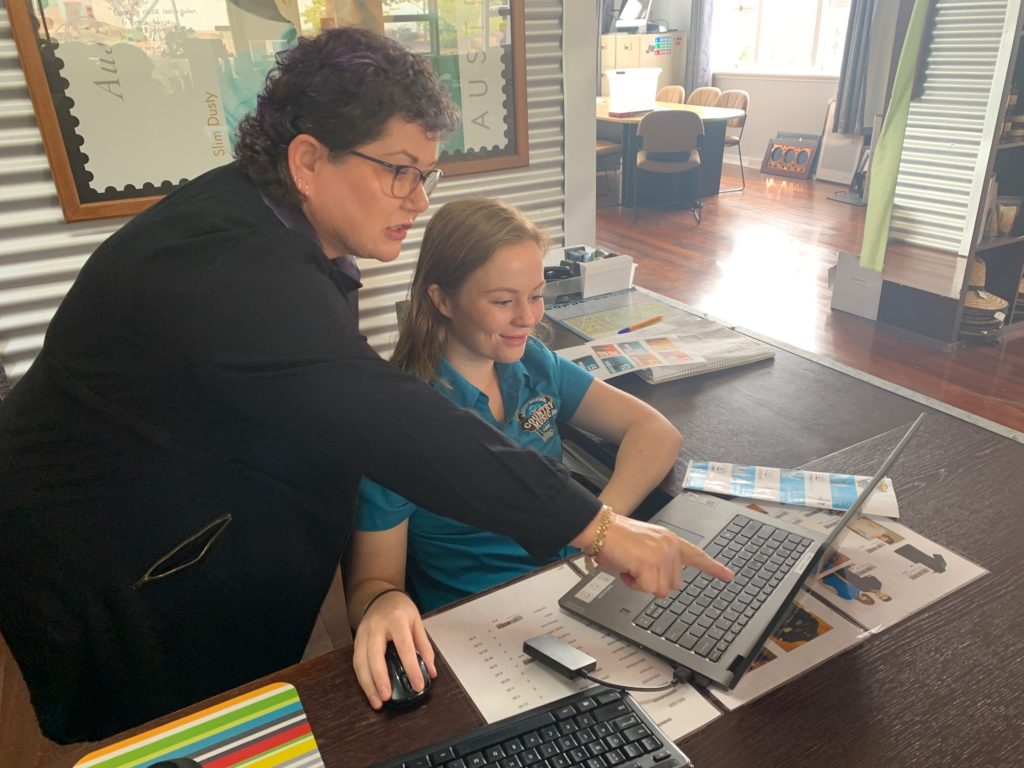
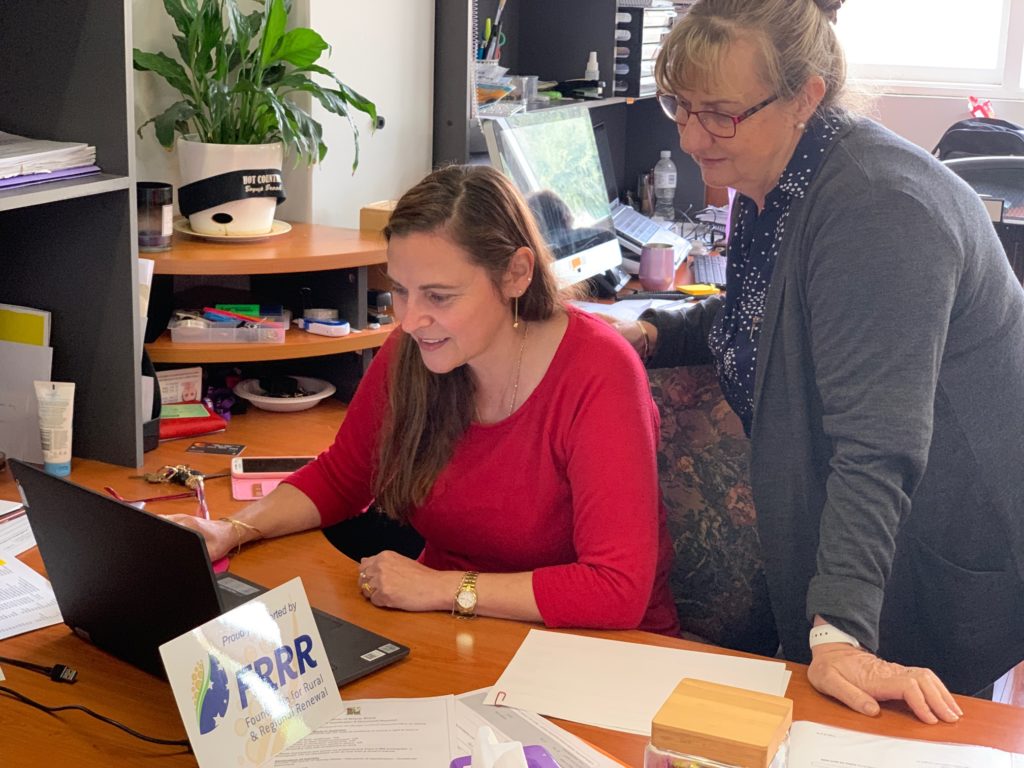
A couple of bad years recently set the club back: in 2017, flooding required the festival to be relocated; and in 2018 the club was hit by a sophisticated ticket scamming operation. On top of all this, the IT equipment available to the group was ageing and unreliable, often freezing unpredictably. Two of the computers were classed as ‘vintage’ by Apple, and the club said they could take a “very long time before they decide to boot up and one makes a noise like crickets are in the building.” This hurdle was adversely affecting the efficiencies and upskilling of the core group volunteers, not to mention the security of ticket sales and smooth running of the festival. But the tough luck the Club had run into had affected their capacity to invest in new equipment.
Daly and Sharon Winter, CMCBB’s President and Music Director, say the Festival helps a small rural community build a vibrant and sustainable community.
“It has wider audience appeal with a multiplier effect for injecting new capital into the local economy, and improves financial well-being within our community. The Festival is a celebration of our country lifestyles and community spirit. The event encourages hundreds of visitors to our state, providing a great boost to our tourism.”
Through the ANZ Seeds of Renewal program, the Club was successful in gaining new equipment. Via the Lenovo stream of the program, the Club was delivered three new Lenovo Thinkpads to support the events future operations, productivity and skill development of the group and volunteers.
The Club also plans to train staff and volunteers to scan, edit, and save photographs and documents to preserve its history as one of the oldest Incorporated Country Music Clubs in Australia and Western Australia.
Some of the volunteers use the equipment throughout the year, and under the guidance of the committee a young employee of the club recently completed her Certificate II and III in Business, plus Event Management modules. In their report, the Club wrote: “Learning new skills through the Club has led past volunteers to new employment options and keeps people living within our rural town and region.”
Nicki Jones, a volunteer, was ecstatic when the new laptops arrived, and with them, she says she achieved much more than she anticipated.
“Not only were they efficient, user friendly and supported current applications, they had a webcam and sound! This might initially sound silly, but in the big picture, this allowed me to join webinars and learn new software packages and how to use the computer to better capacity. I found one of the new software packages extremely useful and have now produced several documents with it for the Club. These documents are up to date, professional and easy to read.”
The experience and access to technology, she said, has built her self-esteem and confidence, and she has since been successful in seeking full-time employment, bringing her new skills to her position.
“I cannot thank FRRR and ANZ enough for making life so much easier.”

